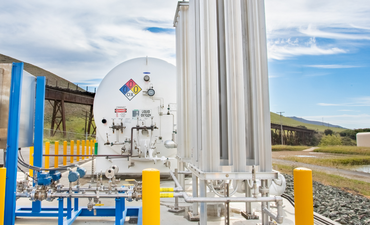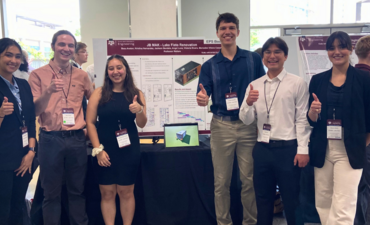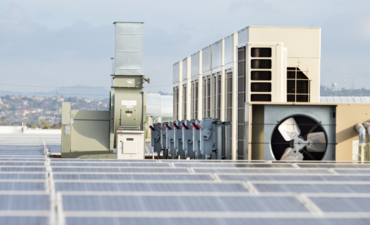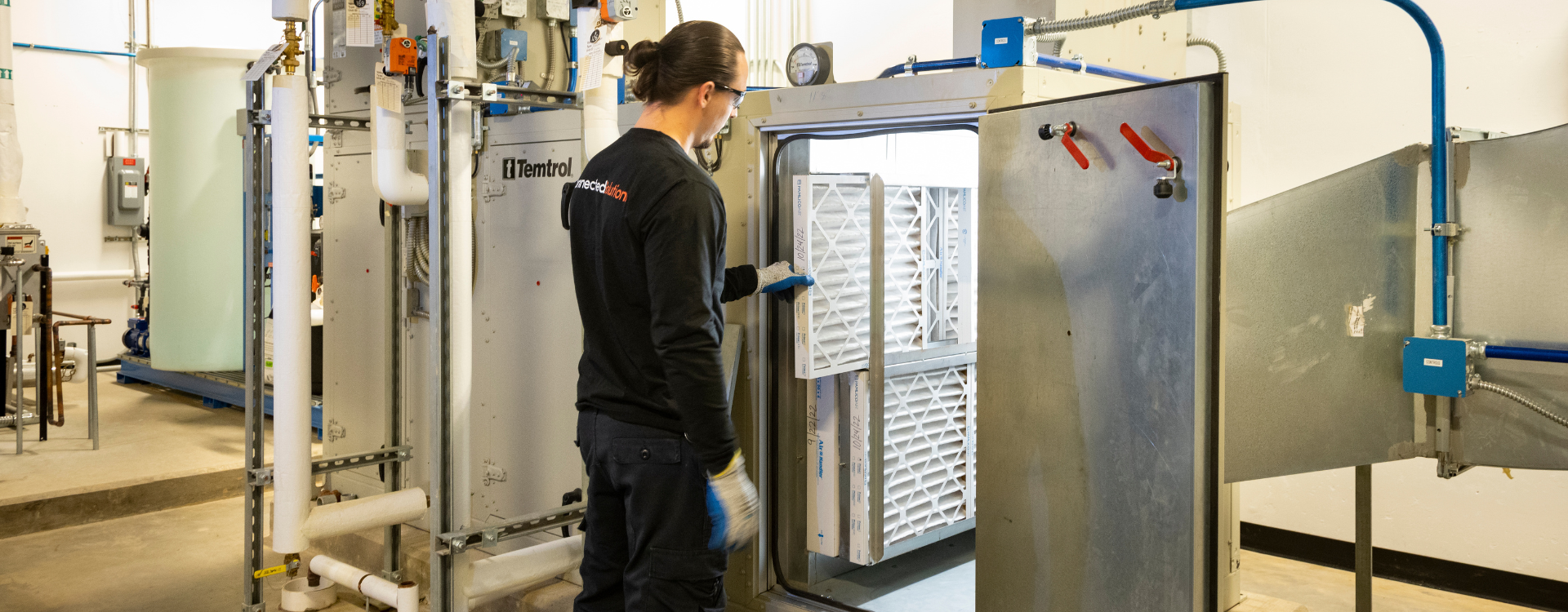
In commercial buildings, HVAC systems are essential for maintaining occupant comfort and energy efficiency. However, continuous operation and exposure to the elements can wear down even well-maintained systems. Without preventative maintenance, minor HVAC issues can escalate, leading to costly downtime and higher energy consumption.
Five common HVAC issues in commercial systems
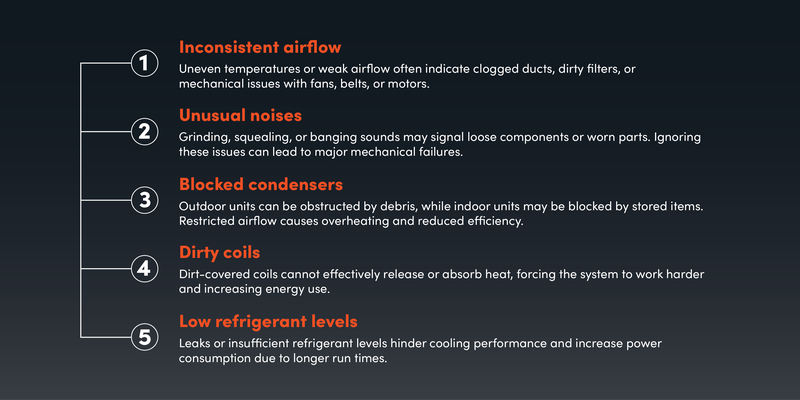
"Dirty and unmaintained equipment has a drastic measurable effect on system reliability, performance, longevity, and energy consumption," Luke Klein, Service Technician, shared.
How to extend the life of your commercial HVAC systems
Identifying common HVAC issues is the first step. Preventative maintenance reduces the likelihood of these HVAC issues escalating into expensive repairs or unexpected downtime. By focusing on consistent upkeep, facility managers can maintain optimal performance while managing costs.
- Schedule a professional inspection: HVAC technicians can thoroughly inspect and diagnose your commercial system, identifying and resolving potential issues.
- Clean or replace air filters and coils: Clean filters and coils improve airflow, efficiency, and indoor air quality.
- Maintain outdoor units: Removing debris and scheduling a professional condenser coil cleaning prevents overheating and supports consistent system performance.
- Reduce indoor heat gain: Window treatments or energy-efficient films lower cooling demands.
- Plan for equipment upgrades: Upgrading outdated or underperforming equipment improves reliability and offers utility savings during peak seasons.
"Regular preventative maintenance and care is a critical investment to ensure anticipated system results and manage capital expenses," Trey Calvery, Service Director, said.
For more information on our mechanical services, click here.
This article is part of a blog series. Click here to read part one.
Senior Content Marketing Strategist
As Senior Content Marketing Strategist, Lindsay Janssen manages our content lifecycle. From ideation, creation, and editing through distribution, measurement, and maintenance, and creating a content strategy, she develops new and innovative ideas for our digital marketing channels.


